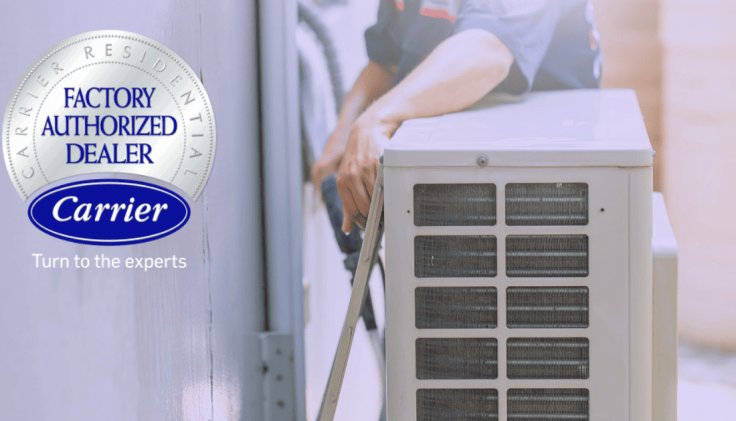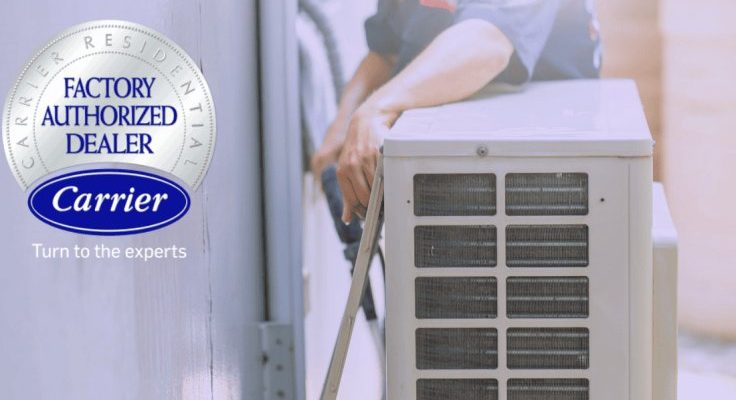
Think of registration as a little insurance policy (with perks), or a secret “unlock” code for your new HVAC. The process is pretty simple: a few details online, maybe your system’s serial number, and you’re done. But skipping this step can lead to headaches down the road—especially if you need support, want the strongest warranty possible, or ever run into issues with your Carrier HVAC remote, controls, or wiring.
Let me explain why it’s worth taking just a few minutes to register your Carrier HVAC system the moment it’s installed. The real benefits? They’re bigger than most people realize.
Unlocking Extended Warranty Coverage
One of the most important reasons to register your Carrier HVAC system right away is the **extended parts warranty**. Honestly, this is the kind of thing you might not think about until something goes wrong and you’re suddenly staring at a repair bill. Carrier, like many top HVAC brands, offers an *additional* warranty on parts—sometimes up to ten years—if you register your system within a certain period after installation (usually 60–90 days). If you miss the window, you could lose out on several extra years of free coverage.
Let’s put it in perspective: Imagine your thermostat or a major component fails after a couple of years. If you registered right away, there’s a good chance Carrier will cover the replacement parts, and you’ll only need to handle the labor. If you didn’t register, you might be out of luck (and out several hundred dollars). That little bit of paperwork at the start suddenly feels like a big deal!
What’s more, having the extra warranty gives you peace of mind. You can set your remote to your favorite temp and not worry about possible “what ifs” in the background. It’s simply a smart move—like putting batteries in your smoke detector before you need them.
Faster Customer Support and Trouble-Free Troubleshooting
Here’s the thing: when something goes wrong with your HVAC system, whether it’s a code error, a remote that won’t sync, or just a strange sound, you want help—fast. Registered Carrier customers often get **priority support**. This means that when you call or go online for troubleshooting, Carrier already has your details and system information on file.
Why does this matter? It speeds up the process—no need to dig around for purchase dates or serial numbers while sweating in a 90-degree house. Carrier’s reps can often look up your information in seconds, guide you through battery resets, help you pair your original remote, or walk you through any system-specific fixes. Registered units also make warranty claims smoother, so you’re less likely to get the runaround.
I’ve seen situations where someone tries to reset their system or code a universal remote, only to realize Carrier can’t help them without proof of registration. Don’t let that be you. Registration is like sending your system’s “medical records” directly to Carrier, so they’re ready to help when you need them most.
Ensuring Accurate Warranty Claims and Proof of Ownership
Let’s be honest: paperwork and proof-of-purchase are usually the last things on your mind when troubleshooting your HVAC. But if it comes time to make a warranty claim or reset your system after a power outage, you’ll need to prove you’re the original owner—and that the warranty is still valid.
Registering your Carrier HVAC system immediately takes care of this. Carrier keeps your purchase date, installer, and serial code in their system. So if you ever need to reset, sync, or pair a new remote, Carrier can confirm you’re covered. It’s a bit like registering your car—the paperwork helps if you ever get pulled over… or in this case, if your AC stops working during a heatwave.
I’ve met people who didn’t register and later spent hours digging up receipts or installer info. Registering right away saves you that scramble. It just makes things simpler.
Access To Product Updates, Recalls, and Important Notifications
Something a lot of homeowners don’t realize is **how important product updates and safety notifications can be**. Carrier sometimes releases updates—like new firmware, better remote codes, or even physical part upgrades. If your unit is registered, you’ll automatically get a heads-up if your specific HVAC model needs a tweak or recall.
Picture this: Carrier finds a way to make your system run 10% more efficiently, or they learn about a possible battery issue in certain remotes. They’ll reach out to registered owners first, so you’re not left out in the cold (or heat). If you never register, you might never hear about these updates, and you could miss a free fix or upgrade.
It’s kind of like being on your car dealer’s recall list. Sure, your car might seem fine, but you’d want to know if something critical needed changing. A registered HVAC system works the same way—it’s about keeping you informed and protected.
Smoother System Transfers and Higher Home Value
You might be thinking, “I’m never moving—I’ll be here forever!” But life changes. If you ever decide to sell your home, a registered Carrier HVAC system can **boost your property value** and make the sales process easier.
When buyers see that your HVAC is registered, they know it’s taken care of, and the warranty is likely transferable. It’s proof you’ve been responsible—a subtle “green flag” for people nervous about hidden costs. And from a practical perspective, if buyers need to sync a universal remote or reset a thermostat, Carrier can help them much faster since the system is already in their database.
In real estate, these little details matter. A registered system can close deals faster and for a better price, making your investment pay off in ways you might not expect. It’s a small step with a big upside, even if moving isn’t on your radar just yet.
Protecting Yourself Against Counterfeit Parts and Unauthorized Repairs
Let’s face it—HVAC systems are big investments, and you want to make sure every repair uses genuine parts. **Registering your Carrier HVAC** with the official manufacturer helps ensure that, if anything goes wrong, Carrier guides your technician to use the right parts and procedures. They’ll also warn you if someone’s trying to install a non-genuine or off-brand component.
Here’s why that matters: counterfeit or unapproved parts can void your warranty, mess with remote codes, or flat-out damage your system. Plus, there are safety concerns—especially with electrical resets and battery replacements. By registering, you create a paper trail with Carrier, so any service or troubleshooting is above-board and backed by the brand.
It’s a bit like going to an authorized mechanic for your car instead of a no-name shop. Sure, the no-name shop is sometimes cheaper… but the risks are usually not worth it. Registration gives you leverage and keeps your repairs honest.
Easy Access To Manuals, Codes, and Troubleshooting Help
Have you ever tried to pair a remote, reset a system, or dig up the original code for your Carrier HVAC after a few years? If you registered your unit, you probably won’t have to scramble. Carrier often gives registered users easy online access to **manuals, setup instructions, and troubleshooting tips** tailored to your exact model.
That means, if your remote stops syncing or a battery needs swapping, you won’t be left guessing. You can log in, download the right guide, or even chat with a support rep who knows exactly which system you own. No more searching for universal remote codes, or worrying if you’re following the right reset steps.
This kind of convenience matters most when you least expect it—your system acts up during the first cold snap, or you’re trying to pair a replacement remote during a busy weekend. With registration, everything you need is usually a click or call away.
Comparing Registration to Skipping It—Why Bother?
You might be tempted to think registration is optional, especially if your system seems to run fine right out of the box. But **skipping registration can leave you vulnerable**—not just for warranty coverage, but also when troubleshooting, syncing remotes, or getting parts quickly.
Here’s a quick breakdown:
| Registered Carrier HVAC | Unregistered Carrier HVAC |
| Extended warranty covers most parts for 10 years | Shorter warranty (often 5 years or less) |
| Priority support and fast troubleshooting | Longer wait for help and more paperwork |
| Automatic updates, notices, and recall alerts | May miss critical updates or safety alerts |
| Easier resale—higher home value | Less appealing to buyers, harder to transfer |
| Proof of ownership—no hunting for receipts | Extra hassle if you ever need to claim warranty |
Registration isn’t just a hoop to jump through—it’s a way of protecting your investment and making life a whole lot easier down the road.
Wrapping It Up: Why Registration Matters
So, registering your Carrier HVAC system right after installation isn’t just smart—it’s essential. It helps lock in the strongest warranty, speeds up support when you need it, and keeps you in the loop on everything from remote codes to safety recalls. You’ll have an edge if something breaks, and an easier time if you ever want to sell your home or hand off the system to someone else.
Honestly, it’s a tiny task that pays off in peace of mind and real savings. So grab that serial code, hop online, and make your Carrier system *official*. You’ll thank yourself the next time you need help, a spare part, or just the right reset instructions!
